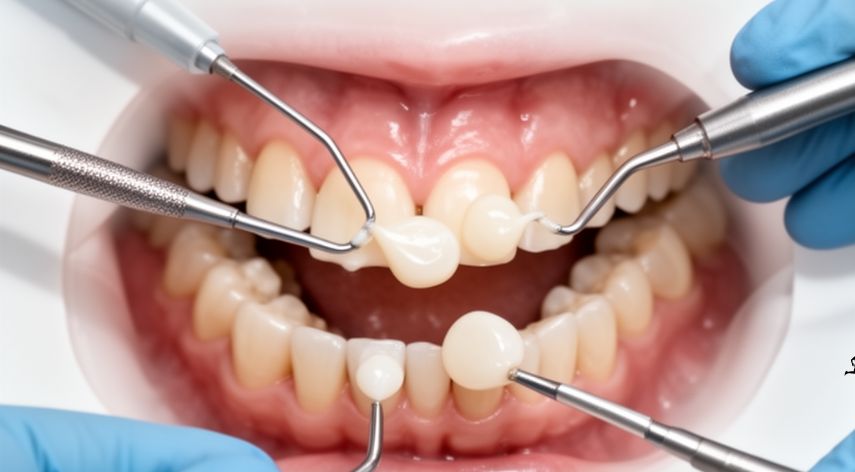Erectile Dysfunction: Understanding how it occurs?
Introduction:
An erectile dysfunction (ED) is a serious health condition in which adult males cannot achieve the normal erection in response to a sexual stimulus. This condition is found more in older adults above the age of 50 years old.
From a medical point of view, it is a sexual dysfunction in which there is a problem with penile erection because of various factors like age, psychological factors, and some medications. This results in a stressful situation among the patients suffering from the dysfunction because of the social stigmas associated with ED.
Prevalence:
In the United States, about 20 to 30 million men are affected.
In Australia, the prevalence of ED is estimated to be 40%.
Pathophysiology:
To understand the pathophysiology of the penile erection, first, you need to know about the normal mechanism that leads to penile erection in healthy males without ED.
Ideally, the autonomic nervous system regulates the contraction and relaxation of penile musculature depending on sympathetic or parasympathetic activation.
A dominant sympathetic activation cause release of norepinephrine, that leads the penile smooth muscles to contract and causes the arterial walls to contract as well resulting in reduced blood flow to the penis, whereas, in parasympathetic dominance, acetylcholine and nitric oxide are released causing relaxation of penile smooth muscles and dilation of arteries, thus increasing blood flow to the tissues resulting in an erection.
Nitric oxide induces the formation of cyclic guanosine monophosphate that is responsible for the vasodilation and erection.
In individuals with erectile dysfunction, the nitric oxide and cyclic guanosine monophosphate mechanism do not happen effectively and are interrupted by various factors including psychological factors, some drugs, and other comorbidities.
Any of the interrupting factors do not allow the parasympathetic activation to dominate resulting in flaccid penis even after sexual stimulation or in some cases there is over the bombardment of the sympathetic neurotransmitter and hormone system responds in a manner that doesn’t allow the pineal smooth muscles to relax, hence there is reduced blood flow to the arteries and erection becomes difficult.
Besides the blood flow reduction, another cause for having erectile dysfunction could be nerve damage, which doesn’t allow the signals from the brain to reach the target organ.
Symptoms of erectile dysfunction:
- Reduced sex drive
- Inability to achieve an erection
- Inability to maintain an erection
Causes of erectile dysfunction:
The primary causes for an ED lie within the parameters of demographic, emotional, and fitness or lifestyle habits.
- Demographic factors include older age, men with age above 70 years are more likely to have ED, on the other end men below age 40 have relatively lesser incidence of the condition.
- Emotional stress like trauma or accidents, psychological conditions like depression and anxiety and traumatic brain damages can also lead to ED
- An unhealthy lifestyle, smoking, alcoholism, tobacco use, or other drug addictions can also be the cause in many men with ED.
Note: To prevent yourself from Erectile Dysfunction you may buy kamagra gel 100mg
Other conditions associated with erectile dysfunction:
Erectile dysfunction can occur secondary to other diseases and medication use, specifically those that have an impact on the circulation and contraction of the penile tissues.
Comorbidities:
- Cause ED due to antihypertensive drugs and also due to excessive vasoconstriction.
- Reduced elasticity of blood vessels to dilate also reduces blood flow to the penis.
- Increased triglyceride (bad cholesterol) can lead to reduced testosterone (male hormones) production.
- Can subsequently cause hypertension and heart problems which ultimately can be a cause of ED.
- : Progressive degeneration of nerves can lead to complications.
- : Damages the nerves and blood vessel that supply the penis
Medications causing Erectile dysfunction:
- Chemotherapy
- Radiotherapy
- Antihistamines
- Antidepressants
- Antihypertensive medication.
Recommended For You
In the heart of the City of London, maintaining excellent oral health is essential for busy professionals and residents alike.
If you’re searching for “composite bonding near me” in London, it’s important to know what truly sets a clinic apart.
Cancer affecting the urinary tract and male reproductive organs requires specialized care. This is where uro-oncology plays a crucial role.
Browse by Category
- Travel
- Technology & Gadgets
- Sports & Games
- Software
- Shopping
- Reviews
- Real Estate
- Numerology
- News
- Make Money
- Lifestyle
- Law
- Home Improvement
- Health
- Gardening
- Games
- Finance
- Entertainment
- Education
- Digital Marketing
- Diet and Fitness
- Dating
- Construction
- Celebrity
- Career and Jobs
- Business
- blog
- Angel Number



